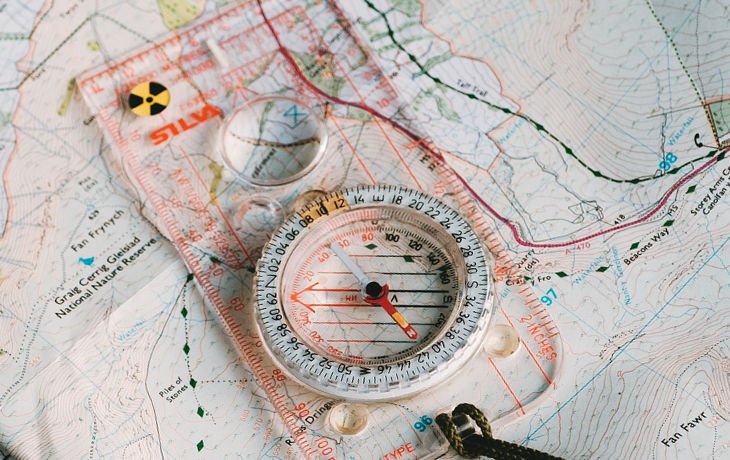How to use a compass and map

-
Comments (15)
-
Wild Bill - May 29, 2019
Excellent! Thanks for the large investment in making this, as complete as anything I have ever seen.
-
John AdamaStaff - May 30, 2019
Thank you Bill!
-
-
Jon - June 17, 2020
Aweaome article! I am new to using a map and compass and this is by far the best and easiest to understand explanation. Thank you!
-
Stormlord - March 17, 2021
Hi, just registered because you have some really amazing articles. I’ll print out some articles, just in case there is no electricity 😉
Regards from Europe
-
Gideon ParkerStaff - March 17, 2021
Glad you have been enjoying the articles so far!
We have a forum as well where you can chat with other preppers, ask questions, and share your knowledge with others.There is a forum thread called ‘What does prepping look like in your area of the world?‘ I bet others would love to hear how prepping is different in Europe from how they do it.
-
Stormlord - March 18, 2021
I’ll do it. Thanks. One question regarding this great article: any recommendations regarding a good compass?
-
Gideon ParkerStaff - March 18, 2021
We do have a whole article about the best compass for survival. It doesn’t only just tell you a list of the best compasses, but also goes over what to look for, the different types out there, and features you might like.
-
-
Gabriel - August 27, 2021
I need some help 😫. Let’s say I don’t want to Orient my map to true North and to the landscape of my current location, can’t I just use Longitude lines and or UTM lines to plot my bearing line to my assuming location for triangulation process and If I use either Longitude or UTM lines do I have to add our subtract degrees. I’m confused to whether I need to use UTM grid lines to align my compass on my map after I take a bearing.
-
Conrad B - August 27, 2021
Orienting your map is pretty much lining north on your map (the top of the map) to true north. Otherwise the top of your map might be facing east, south, or west right?
If you didn’t have a compass to know where north was, you could also use the landscape around you to orient (point your map) in the right direction. You would do this by knowing the general area where you are and looking for a major landmark on your map like a mountain and looking in the real world for that same landmark to line up your map.
I think you really need to use either or both of these methods in order to find out where you are and plan where you are going. Otherwise you could be going the total opposite direction right?
The video in the article about orienting your map gives a good description. https://www.youtube.com/watch?v=PuiIGjteYgY
Even if you don’t do all the math and align it to true north, you still are going to be much more accurate with magnetic north than not orienting your map at all.
Does that help at all Gabriel?
-
Gabriel - August 27, 2021
Yes it does help. Thank you
-
-
Gabriel - August 27, 2021
One more question what’s the difference if I set the declination for my compass to show true north vs not setting and just using magnetic north. I still will place my map on floor to Orient to true North and use Longitude lines. I’ve done this we’re one compass is declinated and the other is not and On both compasses Red is in the shed. I understand that Declinated compass will give me true bearings and the other will give magnetic bearings. I also understand that in order to get a true Bearing from the magnetic compass I will either need to subtract or add the declination for my location. I’m going to try this at a well know trail and see what my differences are just trying to master Triangulation. 😐 Sorry to bug. I hope I made sense 🙈😫
-
Conrad B - August 29, 2021
No worries at all Gabriel. Orienting your map with magnetic north is going to be a great step and one that everyone should do to make sure they aren’t going in the totally opposite direction. However, lining up to True North will be even more accurate and is the best way to navigate.
If you just need a general idea of which direction to go and to point your map in the right direction, then use magnetic north. But if you need precise coordinates like if calling in for rescue, then I would take the extra time to orient to true north.
In all reality, I think a normal casual hiker will just orient to magnetic north and then use landmarks to make sure they are on course.
The nice thing about modern compasses though are that you can swivel that dial and set it once at the beginning of your hike, and then as you are checking the map throughout the trip it will automatically orient correctly to that true north that you had set earlier.
-
Gabriel - August 29, 2021
Thank you for the Response. I completed my hike and I was successful 3 times with Triangulation. But need to work on my pace counts. Thanks again 🙏🧭🗺️
-
Conrad B - August 29, 2021
That’s really awesome! Happy you had a great hike and are a map wizard now.
-
-
Samantha Nichols - December 16, 2022
Ways to read a military map. Read the figures from left to right. This means you will read the figures along the Eastings lines. Read the figures from the bottom to top. This means you will read the figures along the Northings lines.
-